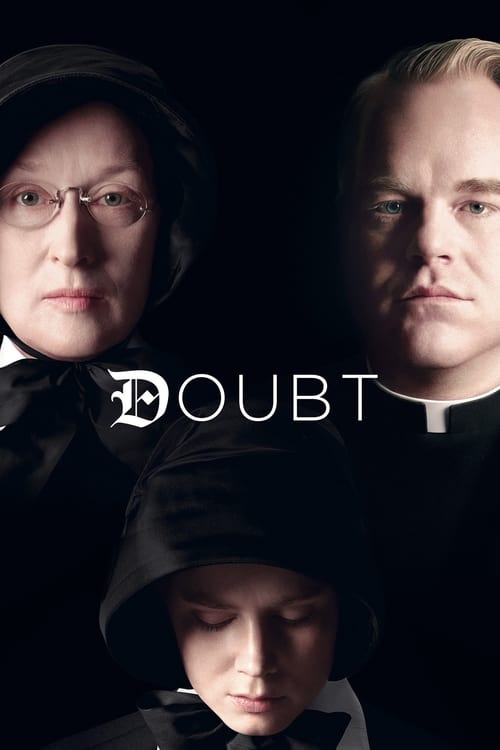
Title: Doubt
Year: 2008
Director: John Patrick Shanley
Writer: John Patrick Shanley
Cast: Meryl Streep (Sister Aloysius Beauvier), Philip Seymour Hoffman (Father Brendan Flynn), Amy Adams (Sister James), Viola Davis (Mrs. Miller), Alice Drummond (Sister Veronica),
Runtime: 104 min.
Synopsis: In 1964 Bronx, two Catholic school nuns question the new priest's ambiguous relationship with a troubled African-American student.
Rating: 7.189/10